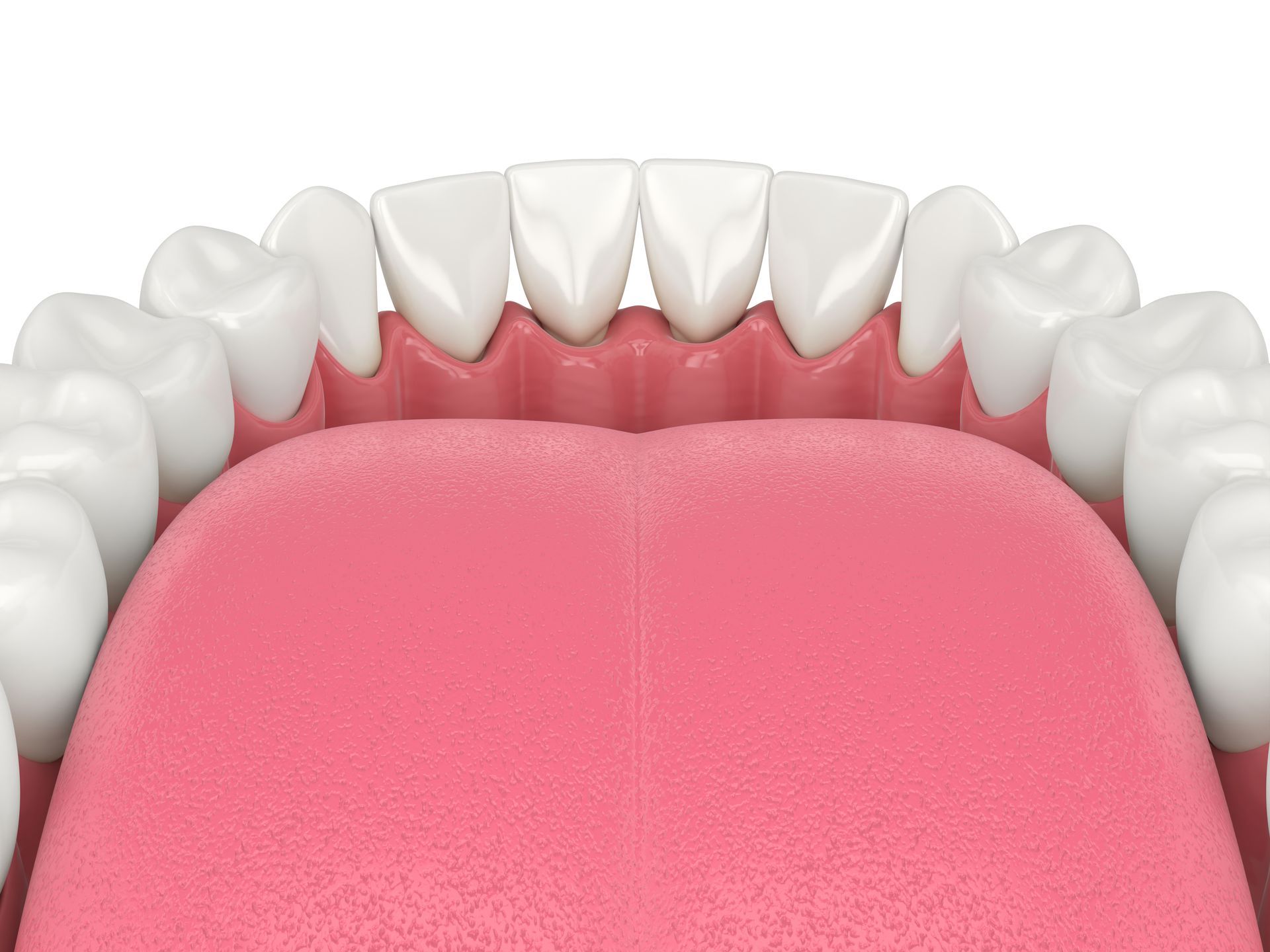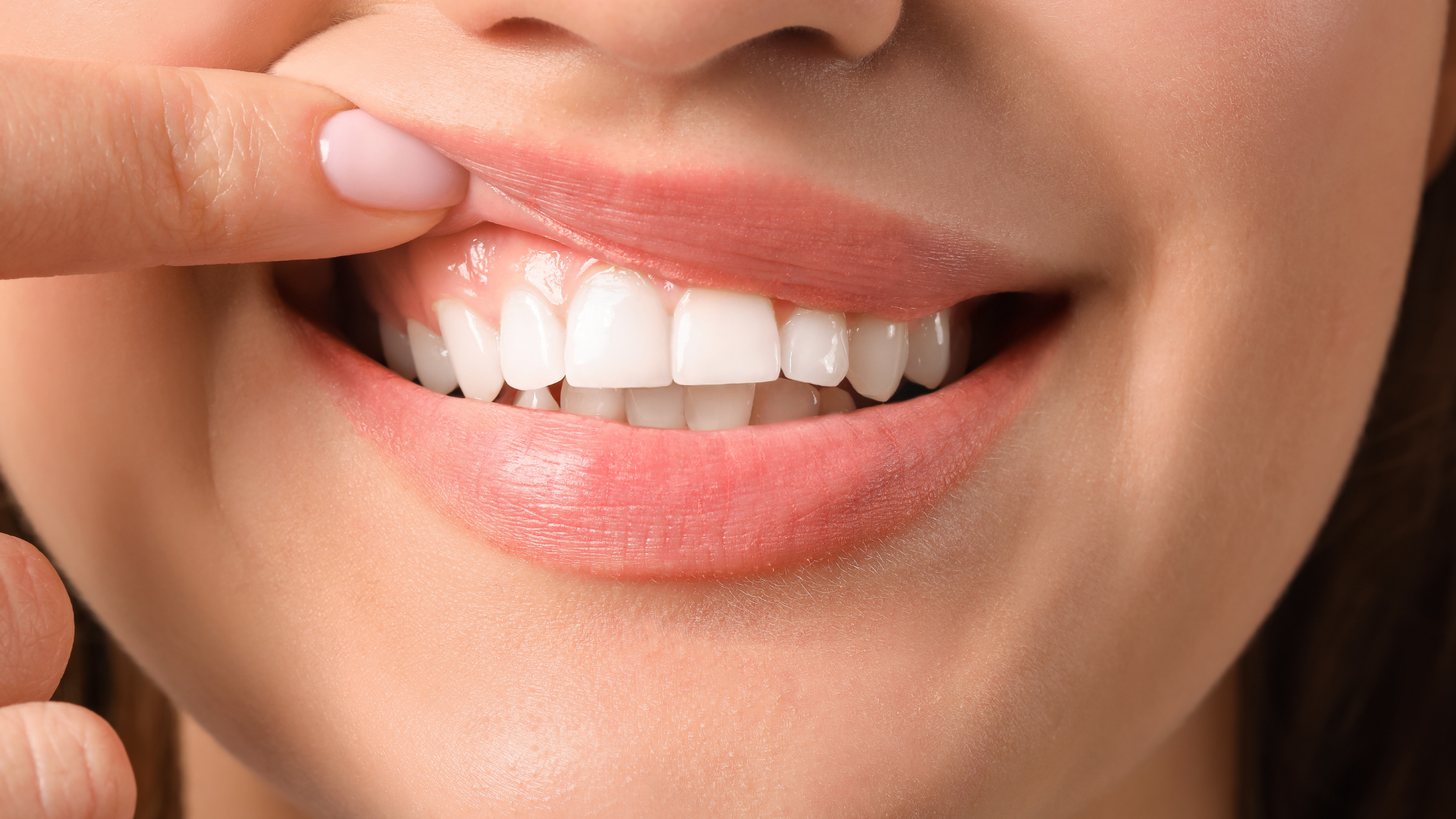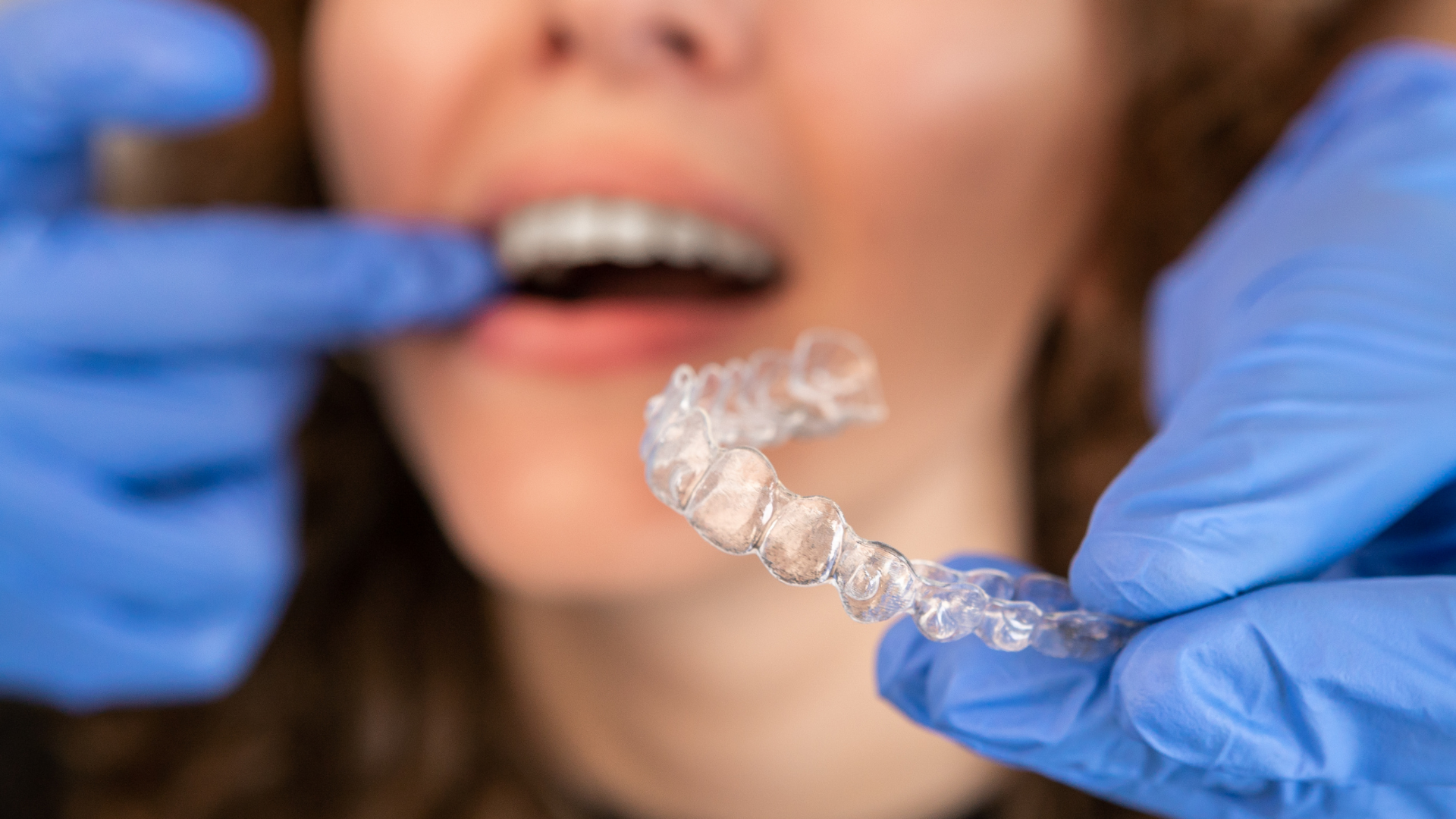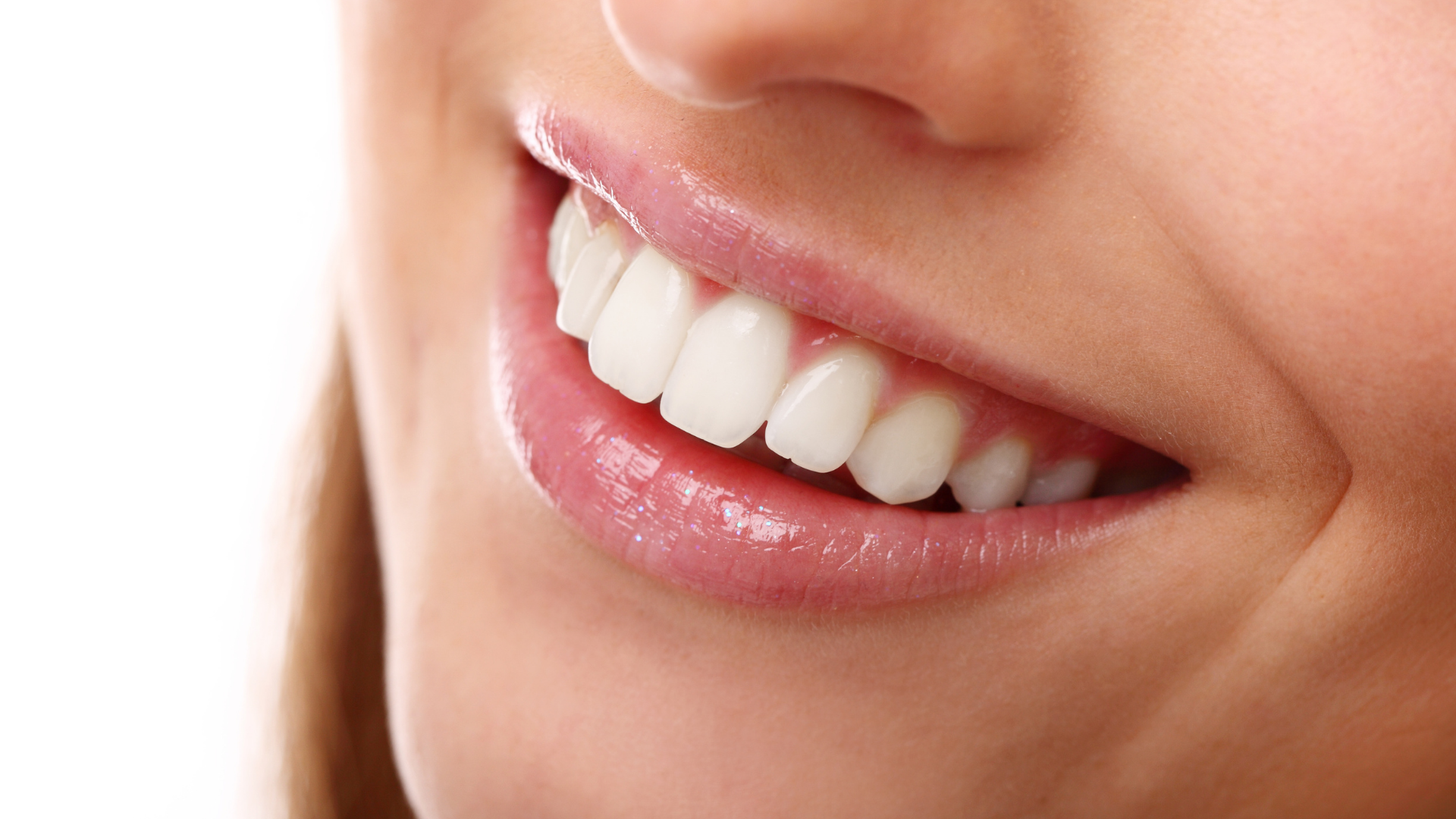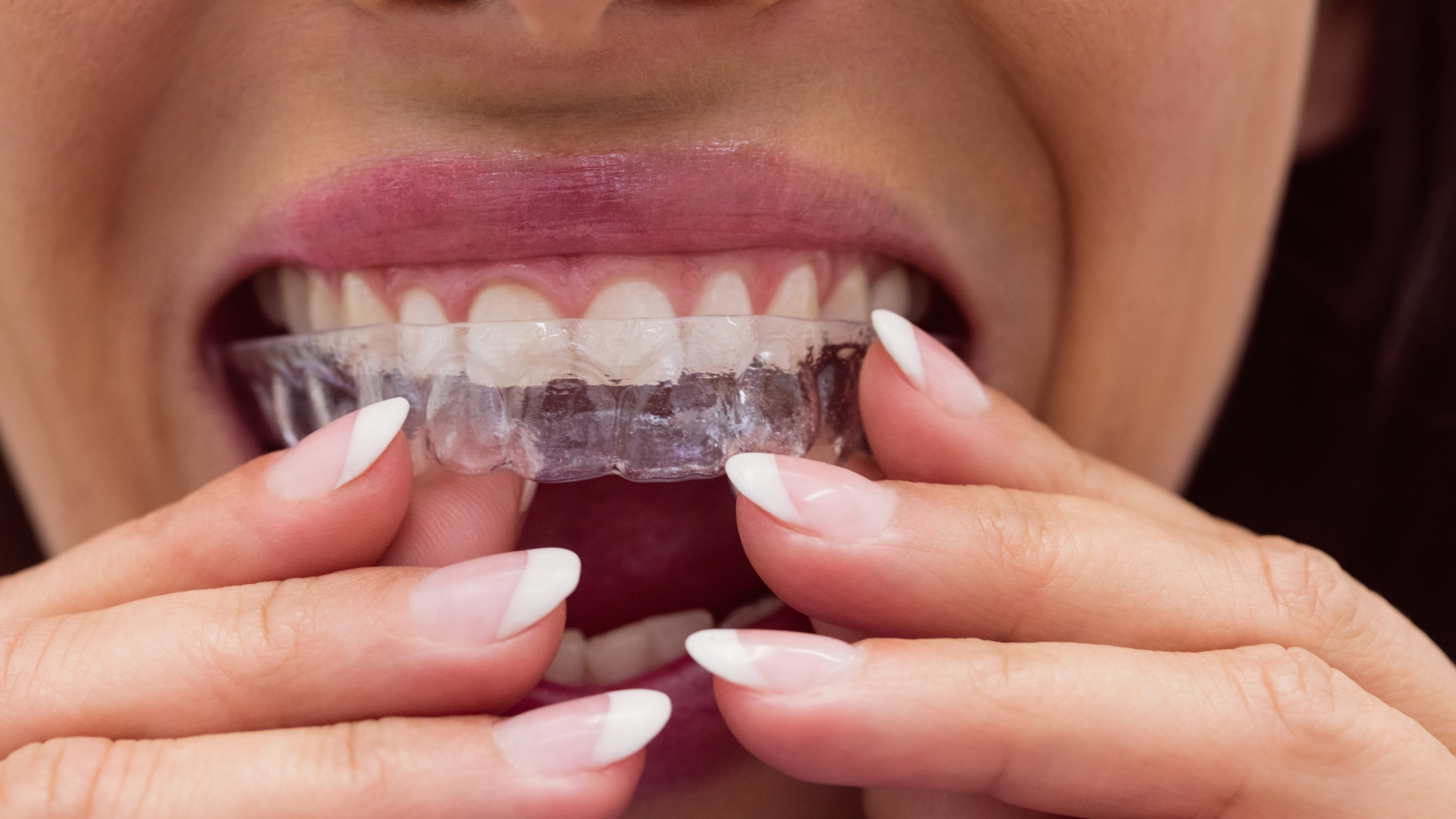What Are Black Triangle Teeth?
Black triangle teeth refer to the small triangular gaps that appear between your teeth near the gum line. Clinically known as “open gingival embrasures,” these spaces can affect both the look and health of your smile. While often a cosmetic concern, black triangles may also signal underlying dental issues.
Quick Summary:
- Appearance: Small, dark spaces between teeth near gums
- Common sites: Front teeth
- Concerns: Aesthetics, food trapping, gum health
Health and Aesthetic Implications
The appearance of black triangles can significantly affect one's aesthetic appeal, often leading to self-consciousness about smiling. From a health perspective, these gaps can harbor food particles and bacteria, increasing the risk of gum disease and tooth decay. Adequate dental care and hygiene are crucial in managing these spaces.
Black Triangle Teeth Causes
Understanding the causes is the first step to prevention or treatment.
Top causes of black triangle teeth:
- Gum Recession: The most common culprit. Gum tissue pulls away, exposing more of the tooth.
- Bone Loss: Often due to periodontal (gum) disease.
- Dental Treatments: Orthodontic work (like braces or Invisalign), over-aggressive flossing, or improper dental cleanings.
- Tooth Shape: Naturally triangular teeth are more prone to gaps.
- Aging: Gums naturally recede with age.
- Trauma or Injury: Any injury affecting gums or teeth alignment
Debunking Common Myths
There’s a lot of misinformation out there! Let’s set the record straight:
Myth #1: Black triangles are only cosmetic.
Fact: They can indicate gum disease or bone loss and may trap food, increasing risk of decay.
Myth #2: Only older adults get black triangle teeth.
Fact: Anyone can develop them, especially after orthodontic treatment or gum issues.
Myth #3: Brushing and flossing cause black triangles.
Fact: Poor technique can damage gums, but proper cleaning helps prevent them.
Myth #4: There’s no effective treatment.
Fact: Modern dentistry offers several solutions, from bonding and veneers to gum treatments and orthodontic care.
Trust Bryant St Dental’s expertise to separate fact from fiction!
Primary Causes of Black Triangles
Gum Recession
Gum recession is a primary factor in the formation of black triangles. It occurs when the gum tissue wears away, exposing more of the tooth and creating gaps. Common causes include periodontal disease, aggressive brushing, and aging.
Orthodontic Treatments
Orthodontic treatments can inadvertently cause black triangles. The natural spacing may lead to gaps as teeth are realigned, especially if the teeth do not perfectly align with their neighbors post-treatment.
Tooth Shape and Position
Teeth' natural shape and position play a crucial role in developing black triangles. Teeth naturally slender or have diverging roots are more prone to forming these gaps. Adjustments in dental restorations or crowns can also influence gap formation.
Prevention: Your Holistic Oral Care Routine
1. Daily Oral Hygiene
- Brush gently: Use a soft-bristled brush and gentle, circular motions.
- Floss carefully: Don’t snap floss—slide it gently.
- Try interdental brushes: These can be less traumatic for gums than floss.
2. Diet & Lifestyle
- Eat a balanced diet: Focus on leafy greens, vitamin C, and calcium for gum health.
- Stay hydrated: Water keeps gums healthy and flushes away debris.
- Avoid smoking: Tobacco worsens gum recession and bone loss.
3. Professional Care
- Regular dental cleanings: Professional scaling keeps plaque away from gum lines.
- Gum health checks: Ask your dentist to assess for early signs of recession.
- Customized advice: Bryant St Dental can personalize your care plan.
Pro Tip: Book your next cleaning before you leave the office to stay ahead of issues!
Oral Hygiene and Black Triangles
Effects of Improper Brushing
Improper brushing techniques can exacerbate the formation of black triangles by causing gum irritation and recession. Frequent, gentle brushing with a soft-bristled brush is crucial to prevent damage to the gum line, which can lead to these dental gaps.
Importance of Correct Brush Size
Using the correct brush size is essential for effective cleaning around and between teeth. A brush that is too large can miss the spaces between teeth, while a brush that is too small may not clean effectively, leading to plaque buildup and worsening dental health.
Preventive Oral Hygiene Practices
To prevent the formation of black triangles, it is vital to adopt comprehensive oral hygiene practices:
- Regular dental check-ups
- Daily flossing
- Use of interdental brushes
- Rinsing with an antibacterial mouthwash
Maintaining a consistent oral hygiene routine is key to preventing black triangles and other oral health issues.
Professional Dental Interventions
Initial Dental Assessment
The first step in addressing black triangles in teeth involves a comprehensive dental assessment, including examining the potential benefits of cosmetic dentistry in Palo Alto. This evaluation helps identify the underlying causes and determines the most effective treatment plan tailored to individual needs.
Treatment for Black Triangles
Modern dentistry offers several effective treatments, including:
- Dental Bonding: Tooth-colored resin closes gaps for a natural look.
- Porcelain Veneers: Custom covers for teeth, masking gaps and reshaping your smile.
- Orthodontic Adjustments: Realigning teeth to close spaces.
- Gum Treatments: Minimally invasive procedures like gum contouring or tissue grafts.
- Biocompatible Fillers: For some cases, gum-colored materials fill the space.
The best treatment depends on your unique needs—Bryant St Dental can help you decide.
Long-Term Dental Care
Maintaining the results of any dental intervention requires consistent long-term care. Regular check-ups, professional cleanings, and adherence to personalized dental hygiene practices are crucial. This ensures the longevity of the treatment outcomes and helps prevent future dental issues. Finding the best dentist in Palo Alto to partner with for these long-term needs is essential for sustained oral health.
Lifestyle Factors Contributing to Dental Gaps
Smoking and Oral Health
Smoking significantly increases the risk of gum disease, leading to gum recession and the formation of black triangles between teeth. Quitting smoking is one of the most effective ways to reduce this risk and improve overall oral health.
Nutritional Impacts
A diet lacking essential nutrients can weaken gum tissue and bones, making the mouth more susceptible to dental gaps. A balanced diet rich in vitamins and minerals supports healthy gums and teeth.
Stress and Its Effects on Gums
Chronic stress can impair the body's immune response, making it harder to fight off infections that could lead to gum disease. Managing stress through meditation, regular exercise, and sufficient sleep is crucial for maintaining healthy gums.
The Role of Dental Anatomy
Natural Variations in Tooth Structure
Every individual's teeth are unique, not just in appearance but also in structure. Natural variations in tooth structure can significantly influence the formation of black triangles. These variations include the shape and size of the teeth, as well as the spacing between them. Understanding these natural differences is crucial for both diagnosis and treatment planning.
How Anatomy Influences Gap Formation
The anatomy of one's teeth directly affects how and where gaps might appear. For instance, teeth that are naturally slender or have a triangular shape are more prone to developing black triangles. Additionally, teeth alignment can play a significant role; even slight misalignments can lead to noticeable gaps.
Adjustments and Dental Corrections
Various corrective measures can be considered in cases where dental anatomy contributes to undesirable gaps. These might include orthodontic interventions to adjust tooth positioning or restorative procedures to alter the shape and size of the teeth. Each case requires a tailored approach to address the specific anatomical factors involved.
Real Patient Stories at Bryant St Dental
Patient Testimonial #1:
“After finishing Invisalign, I noticed black triangles between my teeth. I was self-conscious, but Bryant St Dental explained my options clearly. We chose bonding, and the results look so natural! I’m finally confident in my smile again.”
—
Patient A
Patient Testimonial #2:
“Gum recession left noticeable gaps. Bryant St Dental’s team was incredibly supportive. With a combination of gum treatment and veneers, my smile looks better than ever.”
—
Patient B
Frequently Asked Questions
Are black triangle teeth permanent?
Not necessarily! Many cases can be improved or resolved with the right dental treatment.
Is treatment painful?
Most solutions are minimally invasive and performed under local anesthesia for comfort.
Can I prevent black triangles?
Yes. Gentle oral hygiene, healthy lifestyle choices, and regular dental visits are key. Early intervention is best.
Are black triangles a sign of gum disease?
They can be, especially if paired with other symptoms like bleeding or swelling. A dental exam is the best way to know for sure.
Book Your Consultation at Bryant St Dental
Ready to address black triangle teeth or prevent them before they start?
At Bryant St Dental, our experienced team offers gentle, personalized care for all your oral health needs.
Book your comprehensive consultation today and discover your best smile!
- Call us now
- Book Online

